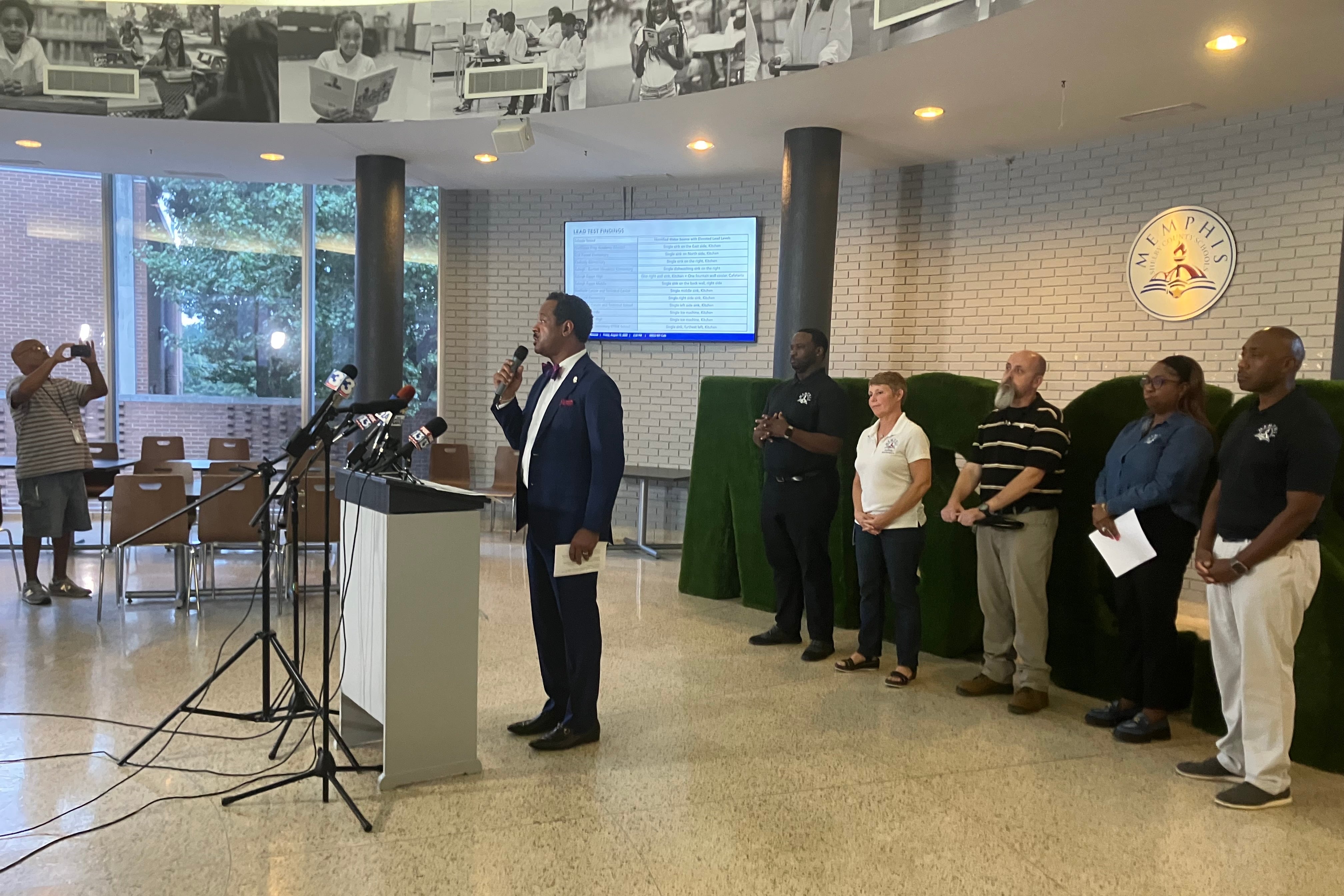Sign up for Chalkbeat Tennessee’s free newsletter to keep up with statewide education policy and Memphis-Shelby County Schools.
Memphis-Shelby County Schools leaders say it’s doubtful that students were exposed to lead by recently reported contaminated water sources.
Michelle Stuart, the district’s facilities leader, said in a press conference Friday that she received the state-mandated lead testing results on July 27. By the next day, all sinks and fountains deemed unsafe were shut off.
“Let me be clear that that was before school started for the year, so no children were in the building,” Stuart said.
MSCS officials called the press conference less than a day after the Shelby County Health Department announced it will offer free blood-lead testing to students at the 24 affected schools.
Interim Superintendent Roderick Richmond said it “may be safe to assume” the toxic metal accumulated in school water sources over the summer, though the last time MSCS leaders conducted districtwide testing was in 2023.
Plumbers are working to discover and repair the source so that sinks and fountains can be re-tested and turned back on. In the meantime, the district will provide bottled water to all affected schools. All buildings also have water filtration systems in at least one water fountain to provide clean drinking water.
Richmond said leaders wanted to “provide context” about facilities-related issues hitting the school system in its first two weeks of classes, including reports of fleas at Berclair Elementary and HVAC disruptions at Central High School.
“We want to be a transparent administration,” Richmond said.
The district reported air conditioning issues in four classrooms at Central High School early Friday, saying one student experienced a medical emergency but is now in stable condition. Stuart said that student was not in a classroom where temperatures were higher than usual, reaching around 76 degrees instead of the preferred 68-72 degree range.
Classes at Central continued without disruption Friday, Stuart said. Cooling issues haven’t been as big of a burden this year, she said, because of “chillers” in place at most MSCS schools.
“It’s really hot outside,” Stuart said during the press conference. “The systems are old in our buildings, and they’re working as hard as they can.”
Since 2021, MSCS has spent over $200 million on repairing school HVAC systems, making up over half of the district’s total maintenance costs.
Stuart said she is confident that the fleas reported last week at Berclair Elementary are now gone. MSCS treated the campus buildings starting Aug. 7 and through the weekend and applied a three-tiered insecticide system on Monday.
“I have not had a single report since then,” Stuart said. The source of the insects hasn’t been found.
Bri Hatch covers Memphis-Shelby County Schools for Chalkbeat Tennessee. Reach Bri at bhatch@chalkbeat.org.







